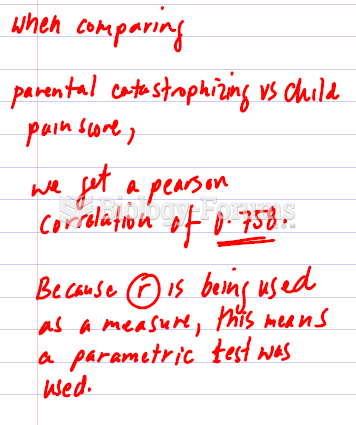Answer to Question 1
ANS: D
The job in data analysis of qualitative data is to get a picture of the topic. Themes and patterns are extracted from the data collected, and sense is made of pieces by putting them into a whole.
The data are coded and analyzed in such a way that they are actually extended beyond the original format. The job in data analysis of qualitative data is to get a picture of the topic. Themes and patterns are extracted from the data collected, and sense is made of pieces by putting them into a whole.
Data are not analyzed by the computer in the same way as they are in quantitative research. The job in data analysis of qualitative data is to get a picture of the topic. Themes and patterns are extracted from the data collected, and sense is made of pieces by putting them into a whole.
Although this is true, it is not the data analysis phase of the study. The job in data analysis of qualitative data is to get a picture of the topic. Themes and patterns are extracted from the data collected, and sense is made of pieces by putting them into a whole.
Answer to Question 2
ANS: D
Examples of scientific misconduct include fabrication, falsification, or forging; manipulation of design or methods; selective retaining or manipulation of data; plagiarism; and irresponsible collaboration.
Lack of scientific objectivity is problematic and can lead to biased results.
Infidelity does not describe this situation. Infidelity implies not remaining true to the chosen method used.
Plagiarism is a specific type of misconduct in which the researcher represents someone else's work as his or her own.







